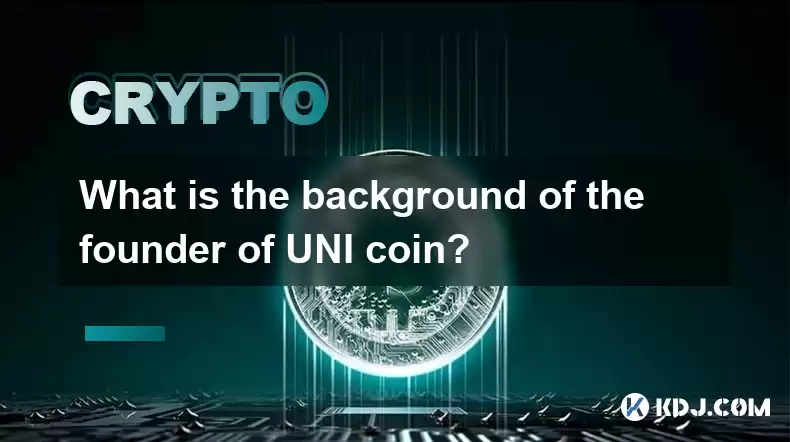-
 Bitcoin
Bitcoin $114100
-0.14% -
 Ethereum
Ethereum $3635
-0.73% -
 XRP
XRP $2.949
-2.85% -
 Tether USDt
Tether USDt $0.9999
-0.03% -
 BNB
BNB $760.3
-0.78% -
 Solana
Solana $163.8
-2.77% -
 USDC
USDC $0.9998
-0.04% -
 TRON
TRON $0.3323
-0.57% -
 Dogecoin
Dogecoin $0.2004
-2.99% -
 Cardano
Cardano $0.7245
-2.87% -
 Hyperliquid
Hyperliquid $37.52
-3.75% -
 Stellar
Stellar $0.3915
-3.58% -
 Sui
Sui $3.416
-2.20% -
 Bitcoin Cash
Bitcoin Cash $559.5
-0.84% -
 Chainlink
Chainlink $16.41
-2.16% -
 Hedera
Hedera $0.2406
-1.78% -
 Ethena USDe
Ethena USDe $1.001
0.00% -
 Avalanche
Avalanche $22.13
-1.98% -
 Litecoin
Litecoin $117.8
-4.32% -
 UNUS SED LEO
UNUS SED LEO $8.989
0.01% -
 Toncoin
Toncoin $3.183
-5.09% -
 Shiba Inu
Shiba Inu $0.00001214
-1.97% -
 Uniswap
Uniswap $9.654
-1.71% -
 Polkadot
Polkadot $3.616
-1.18% -
 Monero
Monero $291.6
-2.66% -
 Dai
Dai $0.9999
0.00% -
 Bitget Token
Bitget Token $4.310
-1.10% -
 Cronos
Cronos $0.1382
-1.93% -
 Pepe
Pepe $0.00001021
-3.40% -
 Aave
Aave $257.9
-1.42%
What is the background of the founder of UNI coin?
Though Hayden Adams spearheaded Uniswap's creation, UNI's success stems from its decentralized governance, built upon community contributions and open-source principles, not a single founder.
Mar 10, 2025 at 08:25 pm

Key Points:
- Uniswap, the decentralized exchange (DEX) behind UNI, doesn't have a single founder in the traditional sense. It's a community-governed project.
- Hayden Adams is widely recognized as the primary architect and initial developer of Uniswap. His background is crucial to understanding the project's ethos.
- Understanding Adams' background helps illuminate Uniswap's decentralized design philosophy and its commitment to open-source principles.
- While Adams played a pivotal role, the project's success relies on the broader community of developers and users.
What is the background of the founder of UNI coin?
The question of UNI coin's "founder" is nuanced. Unlike many cryptocurrencies with a single, identifiable founder like Bitcoin's Satoshi Nakamoto, Uniswap's development and governance are far more decentralized. While Hayden Adams is largely credited with its creation, attributing "founder" status solely to him overlooks the significant contributions of the broader community.
Hayden Adams, the individual most associated with Uniswap's inception, isn't simply a programmer; he embodies the spirit of decentralized finance (DeFi). His background significantly informs the project's ethos and direction. Prior to Uniswap, Adams lacked a traditional finance background. He didn't come from a Wall Street firm or a prestigious university finance program. This lack of established financial expertise is, arguably, a strength. It allowed him to approach the problem of decentralized exchange design with fresh perspective, unburdened by existing financial industry paradigms.
Before diving into Uniswap, Adams worked in various roles, honing his software development skills. These experiences provided him with the technical foundation necessary to build a sophisticated decentralized exchange. This self-taught approach, coupled with his passion for decentralized systems, shaped Uniswap's architecture and its open-source nature. The open-source aspect is paramount, allowing community members to audit, contribute to, and improve the protocol. This open collaboration contrasts sharply with the more centralized development models of many other projects.
The decentralized nature of Uniswap extends beyond its code. The UNI governance token further distributes decision-making power among token holders. This means that the future direction of the project isn't determined by a single individual but by the collective will of its community. This aspect is crucial in understanding the broader implications of Uniswap and its token. Adams's initial contribution was vital, but the project’s ongoing success relies on the participation and contributions of a much wider network.
Adams's journey highlights the unique aspects of the cryptocurrency ecosystem. His background wasn't shaped by traditional routes to financial success, but his technical skills and commitment to decentralization allowed him to create a revolutionary platform. The success of Uniswap isn't simply a testament to his individual talent, but also to the power of collaborative development and community governance. The open-source nature of the codebase allows for constant improvements and adaptation to the evolving landscape of the cryptocurrency world.
The genesis of Uniswap demonstrates a shift in how innovative projects are conceived and developed within the cryptocurrency space. It's a clear departure from the more centralized structures seen in traditional finance. The absence of a single controlling entity fosters transparency and encourages widespread participation. This distributed development model is a defining characteristic of the DeFi movement, and Uniswap is a prime example of its potential.
The story of Uniswap, and implicitly the story of UNI, isn't solely the story of its initial creator. It’s a collective narrative built upon open-source collaboration and community governance. While Hayden Adams's contribution was undeniably instrumental, the project's continued evolution depends on the ongoing participation and engagement of the wider community. The decentralized ethos of Uniswap is reflected in its governance structure and its open-source code, a testament to the broader movement towards decentralized finance.
Here's a breakdown of the steps involved in understanding Adams's influence on UNI:
- Recognizing his role: Acknowledge Adams as the primary developer of the Uniswap protocol.
- Understanding his background: Research his pre-Uniswap experience in software development.
- Analyzing his influence: Consider how his vision shaped the decentralized and open-source nature of Uniswap.
- Considering community impact: Recognize the role of the broader community in the project's success and governance.
- Appreciating the decentralized model: Understand how the governance model distributes power beyond a single founder.
Frequently Asked Questions:
Q: Is Hayden Adams the sole founder of Uniswap?
A: No, Uniswap is a decentralized project with community governance. While Hayden Adams is credited with its initial development, the project's success is a result of collective efforts.
Q: What is Hayden Adams's educational background?
A: Public information about Adams' formal education is limited. His expertise stems largely from self-learning and practical experience in software development.
Q: How did Hayden Adams's background influence Uniswap's design?
A: His lack of a traditional finance background allowed him to approach the problem of decentralized exchange design with a fresh perspective, prioritizing decentralization and open-source principles.
Q: What role does the UNI token play in Uniswap's governance?
A: UNI token holders have voting rights in the Uniswap governance system, enabling them to influence the protocol's future development and direction.
Q: Is Uniswap completely decentralized?
A: While Uniswap strives for decentralization, aspects like initial development and certain aspects of the codebase's maintenance still involve a degree of centralized influence. However, the overarching goal and the mechanisms in place actively push towards a fully decentralized future.
Disclaimer:info@kdj.com
The information provided is not trading advice. kdj.com does not assume any responsibility for any investments made based on the information provided in this article. Cryptocurrencies are highly volatile and it is highly recommended that you invest with caution after thorough research!
If you believe that the content used on this website infringes your copyright, please contact us immediately (info@kdj.com) and we will delete it promptly.
- Coinbase, Financing, and the Crypto Market: Navigating Choppy Waters in NYC Style
- 2025-08-06 12:50:11
- Bitcoin in Indonesia: Crypto Education and Economic Strategy
- 2025-08-06 12:50:11
- DeriW Mainnet: Zero Gas Fees Revolutionize On-Chain Derivatives Trading
- 2025-08-06 10:30:11
- IOTA, Cloud Mining, and Eco-Friendly Crypto: A New York Investor's Take
- 2025-08-06 10:30:11
- Kaspa (KAS) Price Prediction: August 6 - Will It Break Free?
- 2025-08-06 10:50:12
- Pension Funds, Bitcoin ETFs, and Exposure: A New Era of Institutional Crypto Adoption
- 2025-08-06 12:55:12
Related knowledge

What is Chainlink (LINK)?
Jul 22,2025 at 02:14am
Understanding Chainlink (LINK): The Decentralized Oracle NetworkChainlink is a decentralized oracle network designed to bridge the gap between blockch...

What is Avalanche (AVAX)?
Jul 22,2025 at 08:35am
What is Avalanche (AVAX)?Avalanche (AVAX) is a decentralized, open-source blockchain platform designed to support high-performance decentralized appli...

What is Polkadot (DOT)?
Jul 19,2025 at 06:35pm
Understanding the Basics of Polkadot (DOT)Polkadot (DOT) is a multi-chain network protocol designed to enable different blockchains to transfer messag...

What is Litecoin (LTC)?
Jul 23,2025 at 11:35am
Overview of Litecoin (LTC)Litecoin (LTC) is a peer-to-peer cryptocurrency that was created in 2011 by Charlie Lee, a former Google engineer. It is oft...

What is Monero (XMR)?
Jul 21,2025 at 10:07am
What is Monero (XMR)?Monero (XMR) is a decentralized cryptocurrency designed to provide enhanced privacy and anonymity for its users. Unlike Bitcoin a...

How to add indicators to Ethereum chart on TradingView?
Jul 19,2025 at 07:15am
What Is an Ethereum Chart on TradingView?The Ethereum chart on TradingView is a visual representation of the price movement of Ethereum (ETH) over a s...

What is Chainlink (LINK)?
Jul 22,2025 at 02:14am
Understanding Chainlink (LINK): The Decentralized Oracle NetworkChainlink is a decentralized oracle network designed to bridge the gap between blockch...

What is Avalanche (AVAX)?
Jul 22,2025 at 08:35am
What is Avalanche (AVAX)?Avalanche (AVAX) is a decentralized, open-source blockchain platform designed to support high-performance decentralized appli...

What is Polkadot (DOT)?
Jul 19,2025 at 06:35pm
Understanding the Basics of Polkadot (DOT)Polkadot (DOT) is a multi-chain network protocol designed to enable different blockchains to transfer messag...

What is Litecoin (LTC)?
Jul 23,2025 at 11:35am
Overview of Litecoin (LTC)Litecoin (LTC) is a peer-to-peer cryptocurrency that was created in 2011 by Charlie Lee, a former Google engineer. It is oft...

What is Monero (XMR)?
Jul 21,2025 at 10:07am
What is Monero (XMR)?Monero (XMR) is a decentralized cryptocurrency designed to provide enhanced privacy and anonymity for its users. Unlike Bitcoin a...

How to add indicators to Ethereum chart on TradingView?
Jul 19,2025 at 07:15am
What Is an Ethereum Chart on TradingView?The Ethereum chart on TradingView is a visual representation of the price movement of Ethereum (ETH) over a s...
See all articles

























































































